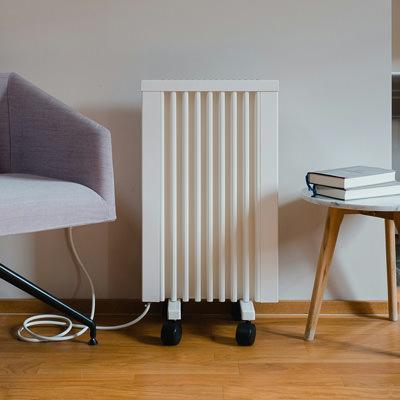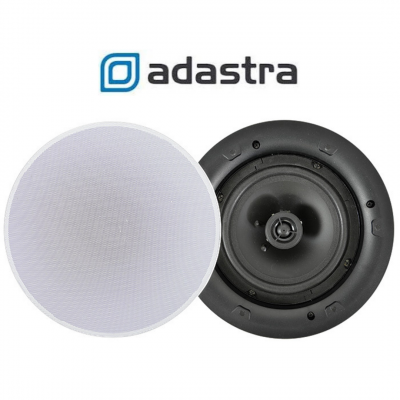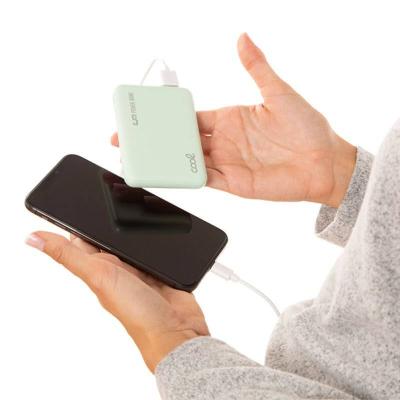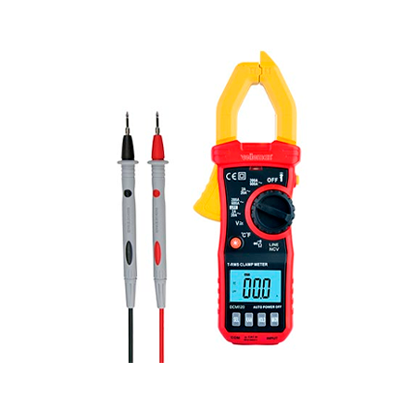
With an expected continuation of a rather cold winter in Portugal, many families are actively searching for the most suitable home heating solution.
A survey conducted in 2022 revealed that 88% of households in Portugal report discomfort with the cold weather, mainly due to insufficient insulation. Therefore, it's no surprise that Portuguese people frequently seek ways to actively heat their homes and ensure some degree of comfort.
In this article, we will explore two of the most popular types of heaters: electric heaters and oil heaters. Both offer unique advantages, and choosing the most suitable one can significantly enhance comfort during the colder months.
How does an oil heater work?
Oil heaters, a popular choice for continuous indoor heating, operate on a simple yet effective principle. These devices contain a special type of oil that retains heat and is heated through an internal element. The generated heat is then transferred to the interior of the heater's metal casing and radiated to the surrounding area. This process allows for efficient and uniform distribution of heat.

Unlike traditional heaters that may use a fan to blow air over a heating element, oil heaters rely on the process of natural convection. The oil inside doesn't burn or evaporate since it's sealed within the radiator and continuously reused, making it a very efficient way to store and transfer heat.
Pros and cons of oil heaters:
When considering an oil heater for your home, it's important to weigh its advantages and disadvantages. In this section, we will delve into the pros and cons of oil heaters, helping you understand if they meet your heating needs and preferences.
Pros:
- Efficient and economical in the long term.
- Provides constant and consistent heat, ideal for prolonged use.
- Silent operation, suitable for bedrooms and quiet spaces.
Cons:
- They take longer to heat a space.
- Less portable due to their weight.
- They can be more expensive upfront.
How does an electric heater work?
Electric heaters, also known as electric radiators or radiant heaters, work by converting electrical energy into heat through various heating elements such as metal coils, ceramic plates, or infrared lamps. The most common type, convection heaters, generate heat that rises to create a vacuum, pulling colder air into the heater. This cycle of warm air rising and cold air being heated creates a constant flow of heat, effectively warming the room.

Some electric heaters use a fan to help distribute hot air more quickly, making them suitable for quick heating needs. Efficiency and heating speed can vary depending on the specific design and technology used.
Pros and cons of electric heaters:
Electric heaters offer a convenient and quick way to heat a space, making them a popular choice for many families. In the next section, we list the main pros and cons to assist you in this evaluation.
Pros:
- Fast heating, making them ideal for immediate warmth.
- Often more portable and lightweight.
- Usually have a lower initial cost compared to oil heaters.
Cons
- In some cases, they may be less energy-efficient for long-term use.
- They can produce noise, especially fan models.
- Heat dissipates quickly when turned off.
Comparative table
The pros and cons we listed above reflect some of the factors to consider when choosing the most suitable type of heater for your home and usage needs. Therefore, to assist in this decision-making process, we have compiled a comparative table that briefly evaluates these heaters in five dimensions: efficiency, heating capacity, portability, noise levels, and cost.
| Criteria | Oil Heater | Electric Heater |
| Efficiency | Good | Medium |
| Heating Capacity | Good | Good |
| Portability | Medium | Good |
| Noise | Good | Medium (models with fan) |
| Cost | Medium | Good |
A matter of details
As we've seen in this article, despite oil heaters and electric heaters appearing quite different, in practice they end up yielding very similar results, with the main differences lying in the details.
Ultimately, for most cases, both are likely to be good options. The criteria we've presented above may help in this decision, especially when acquisition prices are identical.
At Aquário's online store, there are plenty of excellent options for oil heaters and electric thermal radiators to bring comfort to your home during these colder months.
If you're looking for a specialized solution for your home and you're not sure which one to choose, we recommend visiting one of our physical stores in Porto or Braga. One of our experts will be able to help you find the best option.




Comments